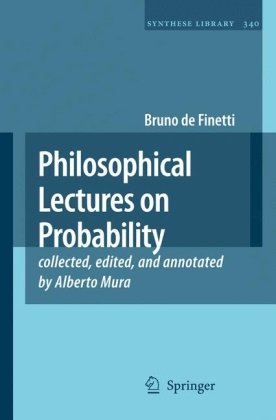

Most ebook files are in PDF format, so you can easily read them using various software such as Foxit Reader or directly on the Google Chrome browser.
Some ebook files are released by publishers in other formats such as .awz, .mobi, .epub, .fb2, etc. You may need to install specific software to read these formats on mobile/PC, such as Calibre.
Please read the tutorial at this link: https://ebookbell.com/faq
We offer FREE conversion to the popular formats you request; however, this may take some time. Therefore, right after payment, please email us, and we will try to provide the service as quickly as possible.
For some exceptional file formats or broken links (if any), please refrain from opening any disputes. Instead, email us first, and we will try to assist within a maximum of 6 hours.
EbookBell Team

5.0
110 reviewsPhilosophical Lectures on Probability contains the transcription of a series of lectures held by Bruno de Finetti (one of the fathers of subjective Bayesianism) and collected by the editor Alberto Mura at the Institute for Advanced Mathematics in Rome in 1979. The book offers a live in-context outlook on de Finetti’s later philosophy of probability. On several points de Finetti’s remarks revise widespread interpretations of his thought and reveal to be topical in the light of recent developments.
The book is enriched by an essay of Maria Carla Galavotti, introducing de Finetti’s philosophy of probability as well as biographical essential information. Moreover, it contains more than 180 editor’s notes, aimed at helping the reader to properly appreciate de Finetti’s thought and its impact on recent philosophical developments about probability.
Philosophical Lectures on Probability is addressed to a wide-ranging audience, including epistemologists, philosophers of science, social scientists, statisticians, economists, historians of mathematics and statistics and, in general, to everyone is interested in subjective Bayesianism and related philosophical problems. The technical prerequisites of the book do not exceed high school mathematics. This does not, however, prevent an elevated standard from the conceptual viewpoint.